My mother decided it was time I was evacuated again. We had friends that lived across the street that moved lock, stock and barrel to Devon. She said she would have me, so I went by train to Winkley, then by taxi to Dolton and to Pennygrew Cottage. Dolton was a small village nestled comfortably in rolling hills and fields of barley and wheat. This was Devon at its best. The nearest train station was two towns away in a larger village called Winkley. When we arrived, my mum and I were tired, excited, but afraid. We came out of the railway station and waited for the one and only taxi to arrive. We asked the driver to take us to the village of Dolton, to a place called Pennygrew Cottage. To our shock, after a long ride we went down a very narrow lane, with room for only one car. The lane had lay-bys so that another car could pass by. The hedgerow was at least seven to nine feet high. The driver dropped us off at a gate that led onto a field.
We said, “Is this it?”
He said “yes” and in a broad Devonshire accent said, “Ye go in this ‘er gate, up yonder to the sty, up the next field, over the bridge, and up that hill, and ye be at Pennygrew Cottage.”
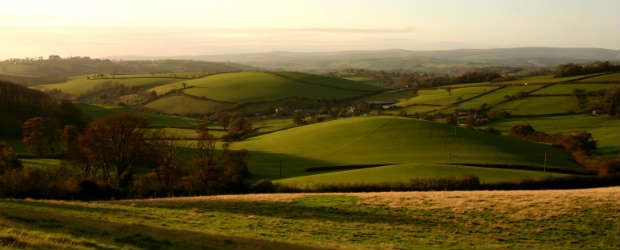
Devon
A cow was standing on the bridge and some others were in the river. I was scared, because I had never been so close to a cow before in my life. Then we had to go up a steep hill to see the cottage. After doing all this we came across a sight to behold – a lovely thatched cottage covered with flowers. It was really picturesque on the top. I saw Ginny Hollingsworth standing by the door in a bright red dress with white dots on it. She was a very colorful woman and very nice. I stayed with them for probably four months.
While I was there they had a village fete and I ran in the races and won them all. I was only eleven and the other kids there were fourteen to fifteen. I won savings certificates. Each certificate was worth twenty six shillings and I won seven certificates.
Down the hill by the little river was another small house. We as kids would look through the windows to see all the furniture covered in white sheets. Some other kids who were from Lambeth were staying in the Parsonage. One day they opened the door and pushed me in. It was very frightening. Ginny had two little girls, and when we went to bed at night, we would all look out the window and see the white sheep wandering around and we would scream with fear because we thought they were ghosts. Ginny would run upstairs and say, “What’s the matter?” and she would say, “They are only sheep!”
I was always suspicious of her husband. He wasn’t at home very much. He had a job in the big city called Torrington. Occasionally, an odd German plane would go over and once I saw him stand to attention and salute with the German-style salute. I thought he was a spy. He had two sisters in France married to Frenchmen and I thought they might be collaborators.
Each morning I would wake-up to the cuckoo bird singing. We had about two to three miles to walk to school and sometimes it was very windy. One day I had some old-fashioned gators on and they blew off right across the field. We would laugh. Schools in the country were very much the same – just one room. Younger ones sat at one end, older ones at the other. One lunchtime it poured with rain so we had to stay in. The head master said he would play an old Welsh ballad. The kids from Lambeth were a little rough and tough.
As the music played, they sang some words to it:
“My teacher has a bunion,
a face like a pickled onion,
a nose like a squashed tomato,
and legs like match sticks.”
The teacher could not believe it. The kids sang it with great gusto.
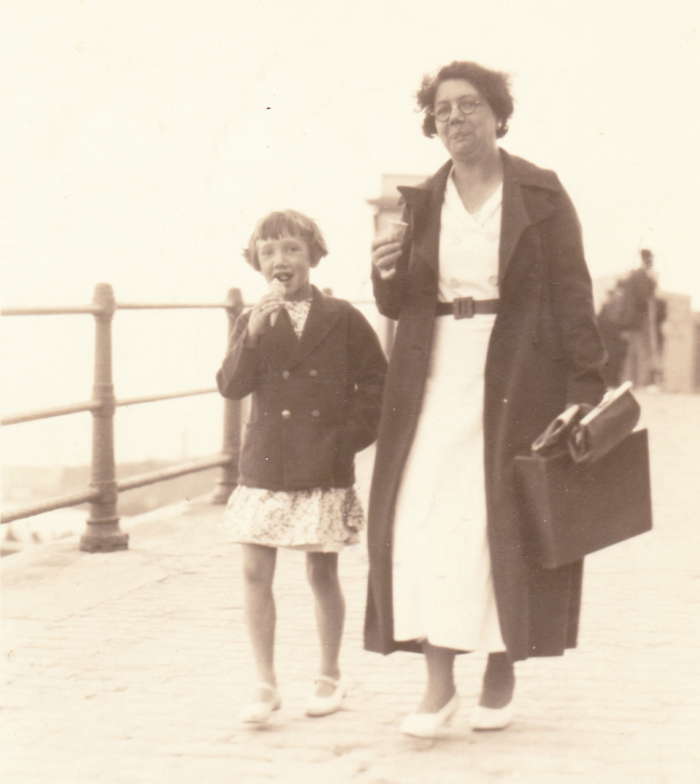
Olive with her mother
Not long after that I was back in London. We had part time school for the first time in my life. It was the end of 1942 and I was thirteen years old. I was in a mixed classroom. The teacher, a man, used to love embarrassing the girls. One boy threw a book across the room at a girl. It landed at the feet of the teacher as he came through the door. He picked it up and said “No doubt she deserved it,” but the book was the Bible, so he got three strokes with the cane across his hand. It really shocked the girls and looked very painful.
Our house was really damaged by bombing and we had to leave. We moved from 13 Azoff Street to Guild Road in Charlton. Three people had been killed in their air-raid shelter so I was really spooked out about living there. But the house had been rebuilt and was nice. I was thirteen years old. I still went all the way to Greenwich to an all girl’s school full-time. It was called Halstow Road. We had what we called lulls, where the Germans did not bomb us through the day. So, it made life more normal. We still had night raids.
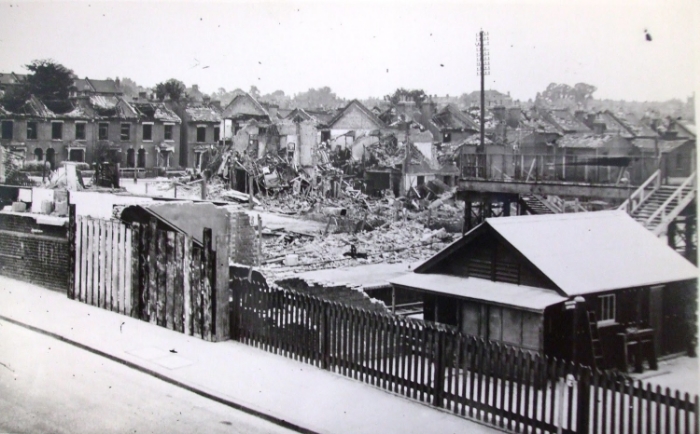
The destroyed Charlton Station (Greenwich Heritage Centre)
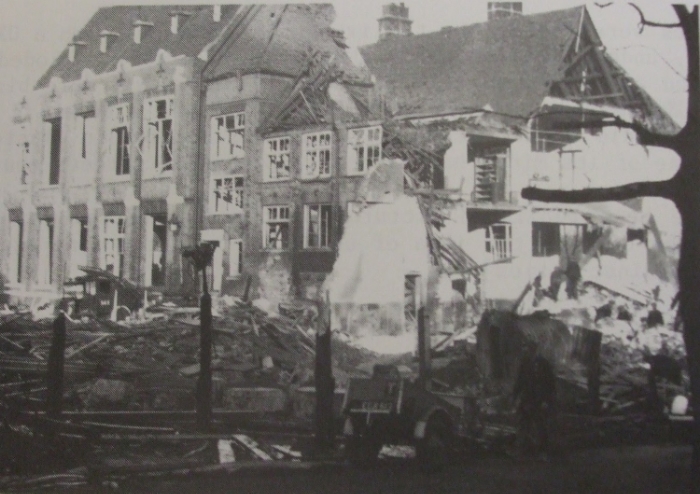
Invicta Road School (Greenwich Heritage Centre)
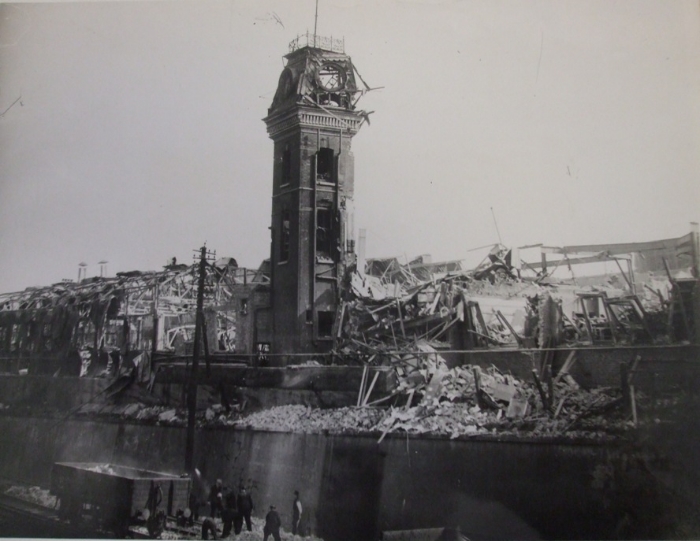
Johnson & Phillips in March 1945 (Greenwich Heritage Centre)
